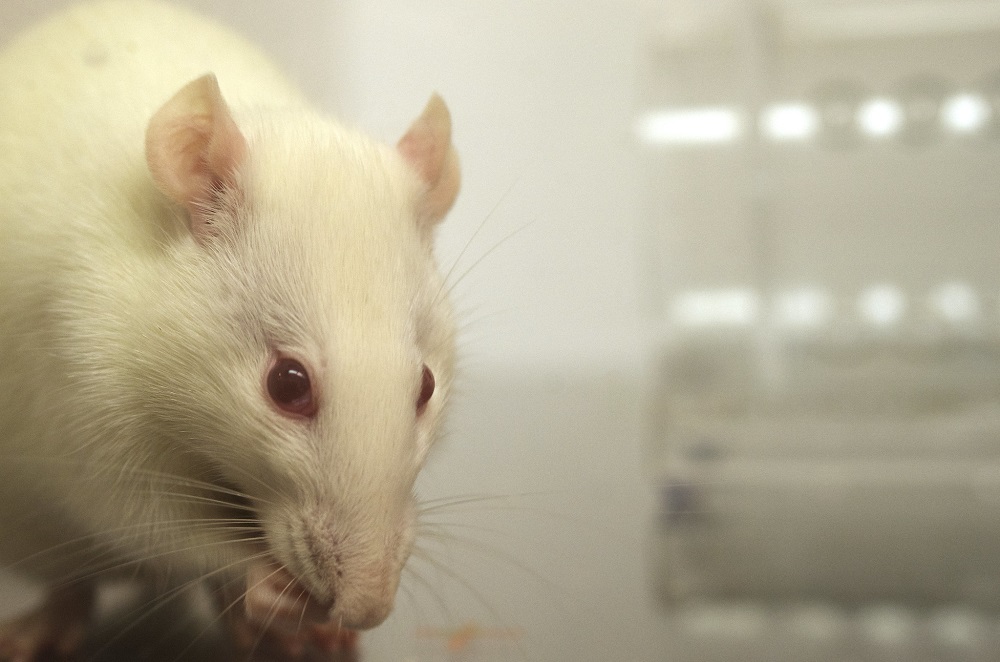Rise in experimental use of animals in Wales

Martin Shipton
Wales has bucked a downward trend in the use of living animals in experiments by registering a slight increase in 2022.
Statistics released by the Home Office revealed that there were 2,761,204 uses of animals in British laboratories last year, a decrease of 10% on the 2021.
But in Wales there was a slight increase, with uses rising from 38,969 in 2021 to 39,261 in 2022.
Overall in Britain, the number of procedures carried out decreased from 1987 until 2001, to a low of 2.62 million. This was mainly due to a reduction in the use of rodents, rabbits and birds, although there was an increase in procedures involving fish.
After 2001, procedures increased, reaching a peak of 4.14 million in 2015 and then started to decrease again to 2.88 million in 2020. This may be partly explained by national lockdowns in response to the Covid-19 pandemic, which may have affected the activity of the establishments. In 2021 there was an increase to 3.06 million.
In 2022 there was a decrease in procedures to 2.76 million – the lowest figure since 2002. The number of procedures in England and Scotland fell by 10% and 7% respectively in the last year.
However, the number of procedures undertaken in establishments in Wales increased by 1% compared with 2021.
A similar trend to Great Britain is seen in the number of procedures for England and Scotland. England’s number of procedures peaked at 3.51 million in 2015 and was lowest at 2.32 million in 2022. Scotland’s peak was 573,000 in 2015 and low was 396,000 procedures in 2020. Whilst Wales also peaked in 2015 at 55,000 procedures, the number of procedures decreased to a low of 39,000 in 2021.
Reduction
Animal protection group Cruelty Free International, the leading organisation working towards ending animal experiments worldwide, welcomed the overall decrease but called for an accelerated reduction in the number of animals used in tests, in line with the UK Government’s recent commitment to developing and using more non-animal methods.
In 2022, the creation and breeding of genetically altered animals – those whose genes have been modified but have not then been used in further tests – accounted for 45% of all uses (1,248,994). Basic research, curiosity-driven research that attempts to shed light on biological processes, accounted for 29% of the total; translational research, research that attempts to develop treatments or cures for diseases, 13%; regulatory testing, standardised tests designed to assess the safety or effectiveness of chemicals, medicines and other products, 10%; and routine production, using animals to produce things like antibodies that go on to be used as medicines and in other applications, 2%.
These figures also show the progress made in eliminating outdated tests, as are described by Cruelty Free International’s UK RAT List – a list of five animal tests that are conducted in Britain despite having approved non-animal replacements and whose abolition could save more than 80,000 animals every year. 2022 saw welcome decreases in skin irritation, skin sensitisation and batch potency tests on animals, but disappointingly there was an increase in eye irritation tests on rabbits.
While severe uses of animals, which cause the most pain and suffering to the animals involved including long-term disease and even death, decreased overall by 18%, there were 20 severe experiments on dogs in 2022, rising from zero in 2021.
There was also an 18% increase in severe experiments on rabbits (to 94), and a 5% rise in severe experiments on guinea pigs (to 1,317). Moderate uses, which cause significant suffering to an animal but are not life threatening, increased overall by 4%.
The total number of experiments on dogs fell by 2%, to 4,122. The number of tests using cats fell by 34%, to 102, and there was a 21% decrease in experiments on monkeys, to 2,197.
Welcome
Dr Emma Grange, Cruelty Free International’s Director of Science and Regulatory Affairs, said: “Since around 2015, the general trend has been for a small reduction, year on year, in the number of tests performed on animals in Britain. We welcome these latest statistics which indicate that the trend continues, with 10% fewer tests recorded for 2022. Yet there is definitely more to be done, and we can do much better than this very gradual reduction.
“Our work will continue to help drive these numbers down, and we need the UK Government, regulators and researchers to be proactive in ensuring that this progress not only continues but accelerates. The government must honour the Home Secretary’s commitment towards developing alternatives to animal testing.
“Any cruel animal test is one too many and we will continue to fight for zero animal experiments in Britain. We are calling for the UK Government to draw up a plan to phase out animal testing for good, by accelerating progress and embracing opportunities for scientific innovation. We need a new ministerial role to deliver the plan, dedicated to accelerating the transition and holding the government to account across all departments so that we can bring about the world free from animal testing that we all want to see.”
Support our Nation today
For the price of a cup of coffee a month you can help us create an independent, not-for-profit, national news service for the people of Wales, by the people of Wales.





